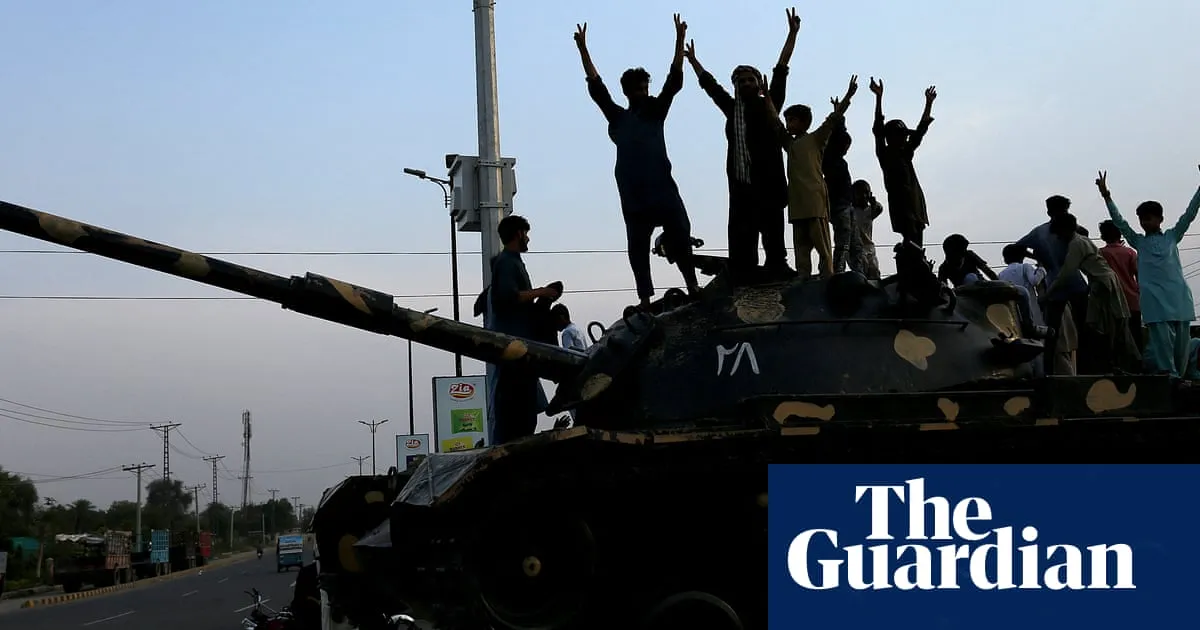
In a significant development, India and Pakistan have reached an agreement for a US-mediated ceasefire effective immediately. However, the future of this ceasefire appears precarious following reports of renewed cross-border shelling and explosions in Indian-administered Kashmir just hours after the announcement. This ceasefire aims to halt the escalating clashes between these two nuclear-armed countries, which have historically been fraught with conflict.
The ceasefire was initially announced by US President Donald Trump on Saturday afternoon, following two days of intense diplomacy involving US Secretary of State Marco Rubio and Vice President JD Vance. Trump expressed his satisfaction on his Truth Social platform, stating, “After a long night of talks mediated by the United States, I am pleased to announce that India and Pakistan have agreed to a FULL AND IMMEDIATE CEASEFIRE. Congratulations to both Countries on using Common Sense and Great Intelligence.”
Confirmation of the ceasefire was later posted on X by Pakistani Deputy Prime Minister and Foreign Minister Ishaq Dar, who emphasized that the ceasefire would take effect “with immediate effect.” Indian Foreign Secretary Vikram Misri added that military heads from both nations had engaged in discussions, agreeing to cease all military actions across land, air, and sea. He mentioned that these military leaders would reconvene on May 12 to reassess the situation.
The optimism surrounding the ceasefire quickly diminished as reports of cross-border shelling resumed between the Indian and Pakistani armed forces on Saturday night. Srinagar, the principal city in Indian-administered Kashmir, experienced heavy explosions and projectiles launched from across the border. An Indian government source informed AFP that Pakistan had violated the ceasefire, while a senior Pakistani security source countered that India initiated the ceasefire violations.
According to Rubio, the ceasefire agreement resulted from extensive negotiations with Indian Prime Minister Narendra Modi and Pakistani Prime Minister Shehbaz Sharif, along with other senior officials. He praised both leaders for their commitment to peace, stating, “We commend prime ministers Modi and Sharif on their wisdom, prudence, and statesmanship in choosing the path of peace.”
The announcement of the ceasefire sparked celebrations throughout both India and Pakistan, especially in Kashmir, where recent hostilities had resulted in numerous casualties along the Line of Control (LoC). In Uri, a town heavily affected by the violence, local resident Tanveer Chalko described scenes of joy among displaced families, declaring, “This is a great step towards peace and the welfare of the people.”
However, the sentiment was not universal. Lal Din, a resident of Poonch, expressed skepticism, recalling past temporary ceasefires brokered by global powers. “We’ve been here before... But until India and Pakistan seriously settle their disputes, we must brace for even greater conflicts,” he lamented. As celebrations erupted in the streets, many were forced indoors as explosions echoed across the region on Saturday night.
The United States has historically played a vital role as a mediator between India and Pakistan during times of heightened tensions. The proactive involvement of the Trump administration marks a shift from Vice President Vance's earlier stance, where he stated that the US would not intervene in the conflict as it was “none of our business.”
Both nations have claimed victory through this ceasefire agreement. India’s Foreign Minister Subrahmanyam Jaishankar reiterated the country’s steadfast position against terrorism, while Pakistani Senator Sherry Rehman commended the leadership for maintaining dignity and professionalism. The ceasefire follows a series of accusations of missile strikes exchanged between both nations, escalating fears of an all-out war.
India and Pakistan have a long history of conflict, having fought four wars, with the most recent occurring in 1999. Tensions escalated this week after India launched missile strikes that resulted in casualties in Pakistan, which it claimed were retaliatory measures following an attack in Indian-administered Kashmir. This cycle of violence saw both countries engage in drone strikes and military actions, raising alarms over a potential major conflict.
As both sides claim to be committed to de-escalation, the US-brokered ceasefire offers a glimmer of hope amid fears of a wider war. The G7 had previously urged both nations to exercise maximum restraint, underscoring the international community's concern regarding this volatile situation.